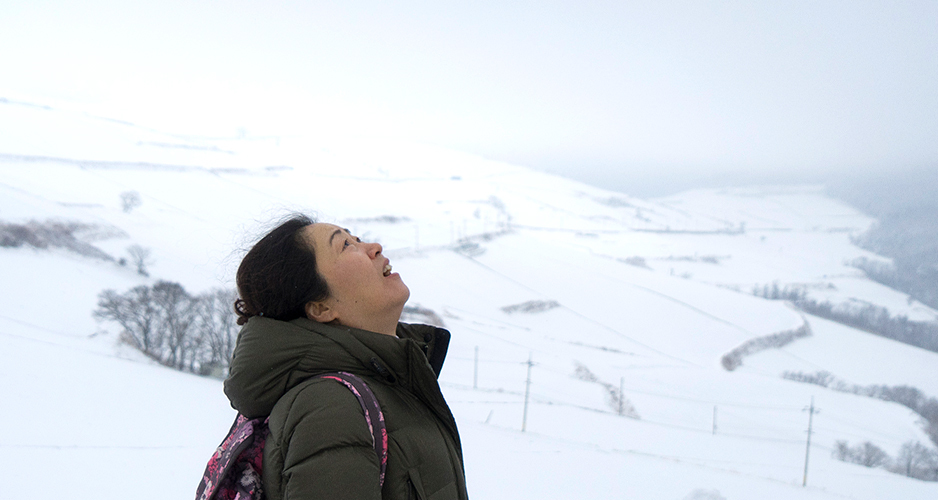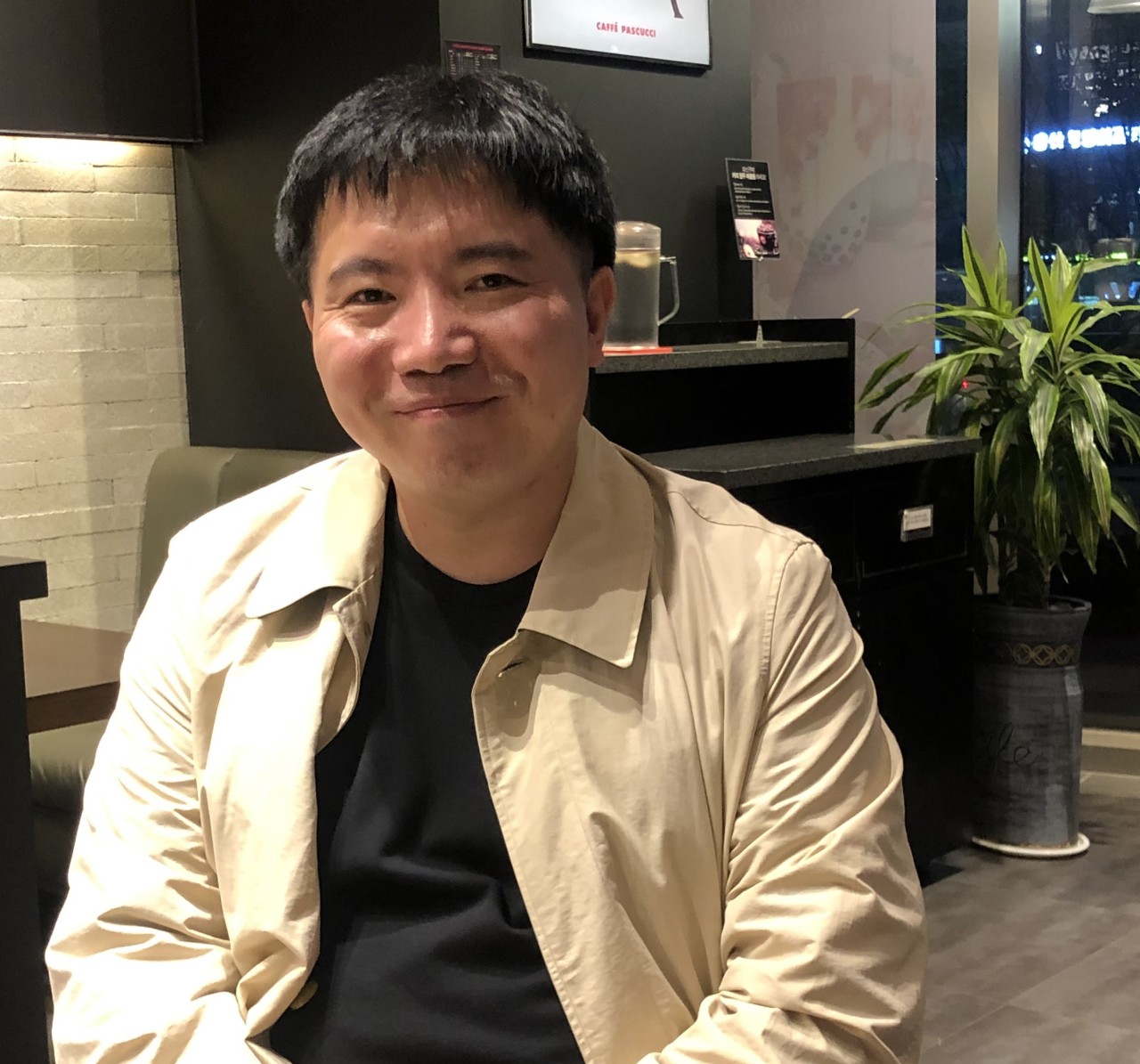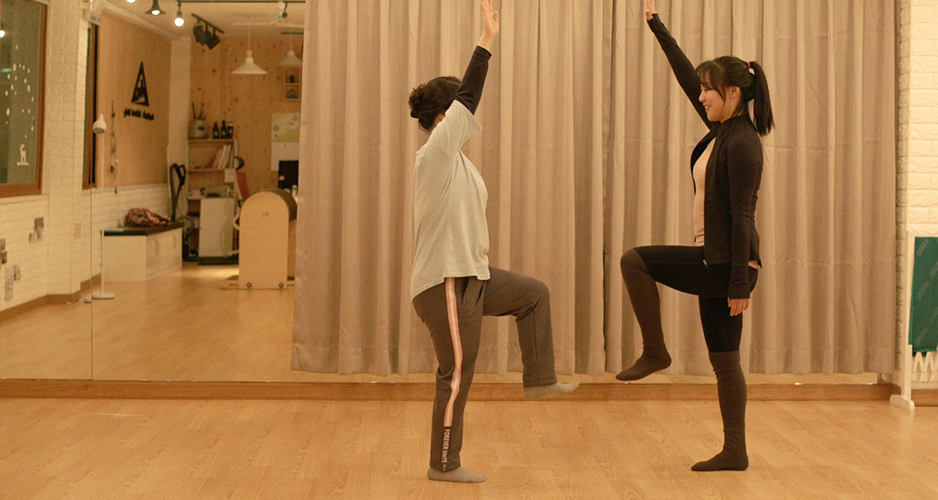[Herald Interview] ‘The Hill of Wind,’ personal yet inclusive story
Director Park Suk-young explains why he had to make the film
By Choi Ji-wonPublished : April 22, 2020 - 17:33

What is left to a middle-aged married woman in modern Korean society when her various titles -- mother, wife and a daughter-in-law -- are removed?
Perhaps this is where the film “The Hill of Wind” starts from, director Park Suk-young told The Korea Herald during an interview held Tuesday in Seoul.
“The Hill of Wind” tells the story of two women, a mother and her daughter, but it’s not a family film. The film starts with Yeong-bun, played by actress Jung Eun-kyung, returning to her hometown Taebaek, Gangwon Province, after the death of her husband. Yeong-bun found it difficult settle in a place or in a relationship and has been wandering her whole life. Here, Yeong-bun finds her daughter Han-hui, played by actress Jang Sun, whom she had abandoned out of fear of becoming a single mother. Yeong-bun approaches her daughter, a Pilates instructor, without revealing their ties and builds a connection as a teacher and student.

Director Park, 47, said he faced another wave of fear and insecurity after he closed the curtains on his flower trilogy four years ago. Although he hadn’t intended the film to form a coherent set, starting with his first film “Wild Flowers” in 2014, followed by “Steel Flower” (2015) and “Ash Flower” (2016), he has dealt with the reality female teenage runaways face, forced to survive in the world of adults.
“I myself had led a wandering life, and maybe that was why I was drawn to them. I felt the insecurities in my life was not much different from theirs. I made a film about those kids, following them for some five to six years,” Park said.
Park said he experienced something like a depression after completing the series.
“The trilogy was finally over and I could see Ha-dam (the main character) stepping away from me towards her own life, but there I was, watching her back. I had tried my best, working endlessly for around six years, but I couldn’t leave them,” Park said.
With “The Hill of Wind,” Park talks about how these children face the parent who abandoned them, leaving them to face the harsh reality on their own.
“Although ‘The Hill of Wind’ is not a follow-up to the series, the main theme continues,” Park said.
Han-hee is a positive person on the outside, yet she experiences unexplainable symptoms of wheezing when alone.
“I didn’t want to pity Han-hui’s life. She doesn’t destroy her life with hatred towards others, including her mom.”
“Although the symptoms may be different, everyone, including myself, has their own moments when they feel out of breath and suffocating. We’re not often able to exist just being ourselves,” Park said.

Even when Han-hui finds out that Yeong-bun is her mother, she does not feel betrayed; it is Yeong-bun who says she feels life is “unfair.”
“The film is not about a mother but a woman who was given the role of a mother. Often in life, many women are given many titles -- mother, wife, and daughter-in-law -- unable to break free from them forever. Yeong-bun was what I imagined how women would seem without those titles,” Park said.
With “The Hill of Wind,” Park says he faced all the relationships that he had run away from, including one with himself.
“It’s been around a year since I completed the film, and come to think of it, maybe I had made the film to let myself breath, to face all the relationships and climb up the winter hill like Han-hui and breath properly.”
“The Hill of Wind” opens in local theaters on Thursday.
By Choi Ji-won (jwc@heraldcorp.com)







![[KH Explains] How should Korea adjust its trade defenses against Chinese EVs?](http://res.heraldm.com/phpwas/restmb_idxmake.php?idx=644&simg=/content/image/2024/04/15/20240415050562_0.jpg&u=20240415144419)












![[Today’s K-pop] Stray Kids to return soon: report](http://res.heraldm.com/phpwas/restmb_idxmake.php?idx=642&simg=/content/image/2024/04/16/20240416050713_0.jpg&u=)